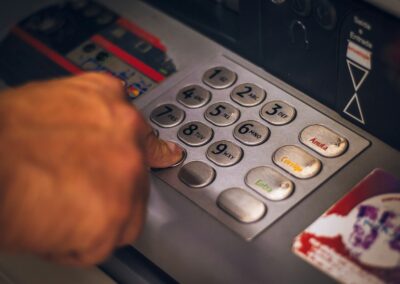Understanding the Legal Landscape
Navigating Complex Legal Frameworks
Regulatory challenges in blockchain finance include navigating complex legal frameworks, ensuring compliance, and addressing concerns about security and fraud. In Saudi Arabia and the UAE, these challenges are particularly pronounced due to the rapid pace of technological advancement and the evolving nature of financial regulations. Blockchain, by its decentralized and immutable nature, often conflicts with traditional regulatory structures, which rely on centralized oversight and control.
In Riyadh, the Saudi Arabian Monetary Authority (SAMA) has been proactive in developing a regulatory framework that balances innovation with security. SAMA’s approach includes creating a regulatory sandbox to allow fintech companies to experiment with blockchain solutions under regulatory supervision. This initiative helps regulators understand the technology better and develop appropriate guidelines that foster innovation while protecting consumers and the financial system.
Dubai, on the other hand, has taken significant steps through the Dubai Blockchain Strategy to integrate blockchain into all aspects of government and finance. The Dubai Financial Services Authority (DFSA) is working on creating a robust regulatory framework that addresses the unique aspects of blockchain technology. This includes establishing guidelines for smart contracts, tokenization, and decentralized finance (DeFi). These efforts are crucial in ensuring that blockchain solutions are compliant with existing laws while paving the way for new regulatory standards that accommodate the evolving technology.
Ensuring Compliance with International Standards
Ensuring compliance with international standards is another significant regulatory challenge in blockchain finance. As blockchain transactions often cross borders, financial institutions in Saudi Arabia and the UAE must adhere to both local regulations and international compliance requirements. This dual compliance can be complex, requiring a deep understanding of multiple regulatory environments and the ability to navigate them effectively.
In Saudi Arabia, compliance with international standards such as the Financial Action Task Force (FATF) guidelines on anti-money laundering (AML) and combating the financing of terrorism (CFT) is critical. Blockchain technology, with its potential for anonymity and decentralized transactions, presents unique challenges in meeting these standards. SAMA has been working on integrating blockchain’s transparency and traceability features to enhance compliance with AML and CFT regulations.
Similarly, in Dubai, the DFSA has been aligning its regulatory framework with international standards to ensure that blockchain-based financial services are compliant globally. This includes adopting the principles of the International Organization of Securities Commissions (IOSCO) and the Basel Committee on Banking Supervision. By ensuring that local regulations are harmonized with international standards, Dubai aims to create a blockchain ecosystem that is not only innovative but also trusted and secure on a global scale.
Addressing Security and Fraud Concerns
Security and fraud concerns are paramount in blockchain finance, and addressing these issues is a key regulatory challenge. Blockchain technology, while inherently secure due to its decentralized nature and cryptographic principles, is not immune to security threats. Hacks, fraud, and the misuse of digital assets pose significant risks that regulators in Saudi Arabia and the UAE must mitigate.
In Riyadh, SAMA has emphasized the importance of cybersecurity in its regulatory framework for blockchain finance. This includes stringent security protocols for blockchain implementations and regular audits to ensure compliance. By focusing on robust security measures, SAMA aims to protect consumers and maintain the integrity of the financial system against potential threats.
Dubai has also prioritized security in its blockchain strategy. The Dubai Electronic Security Center (DESC) works alongside the DFSA to ensure that blockchain platforms adhere to the highest security standards. This includes comprehensive risk assessments, the implementation of advanced security technologies, and continuous monitoring for vulnerabilities. By fostering a secure blockchain environment, Dubai aims to build trust in blockchain-based financial services and encourage wider adoption.
Leadership and Strategic Management in Blockchain Finance
Strategic Leadership in Regulatory Development
Effective leadership is crucial in navigating the regulatory challenges in blockchain finance. In Saudi Arabia and the UAE, leaders in both the public and private sectors are playing a pivotal role in shaping the regulatory landscape for blockchain technology. Their strategic vision and proactive approach are essential in balancing innovation with regulatory compliance.
In Riyadh, leaders at SAMA and other regulatory bodies are driving the development of a forward-looking regulatory framework that supports blockchain innovation. By fostering collaboration between regulators, financial institutions, and technology companies, these leaders are creating an ecosystem that encourages the safe and responsible use of blockchain technology. This collaborative approach is vital in addressing regulatory challenges and ensuring that blockchain solutions are both innovative and compliant.
Dubai’s leadership in blockchain finance is exemplified by the initiatives led by the Dubai Future Foundation and the Smart Dubai Office. These organizations are spearheading efforts to integrate blockchain into various sectors, including finance, healthcare, and logistics. By providing strategic direction and fostering an environment of collaboration and innovation, Dubai’s leaders are setting the stage for the successful adoption of blockchain technology while addressing regulatory challenges.
Effective Project Management in Blockchain Implementations
The successful implementation of blockchain projects requires robust project management and strategic planning. In Saudi Arabia and the UAE, financial institutions and technology companies are adopting best practices in project management to ensure the seamless execution of blockchain initiatives. This involves meticulous planning, resource allocation, and continuous monitoring to achieve desired outcomes.
In Riyadh, banks and fintech companies are employing agile project management methodologies to drive blockchain projects. This approach allows for greater flexibility and adaptability, enabling project teams to respond quickly to changing requirements and challenges. By fostering collaboration and communication among team members, agile methodologies help ensure that blockchain projects are delivered on time and within budget.
Dubai has also seen the implementation of numerous blockchain projects across various sectors, supported by comprehensive governance frameworks. The Dubai Blockchain Strategy provides a clear roadmap for the deployment of blockchain, ensuring alignment with broader economic and development goals. Effective project management is key to the success of these initiatives, ensuring that projects are executed efficiently and deliver tangible benefits. By leveraging advanced project management tools and technologies, Dubai is setting a benchmark for blockchain implementation.
Conclusion
In conclusion, regulatory challenges in blockchain finance are significant but not insurmountable. By navigating complex legal frameworks, ensuring compliance with international standards, and addressing security and fraud concerns, Saudi Arabia and the UAE are setting new standards for the integration of blockchain technology into the financial sector. Strategic leadership and effective project management are critical in overcoming these challenges and fostering a blockchain ecosystem that is innovative, secure, and compliant. As blockchain technology continues to evolve, the efforts of regulators and industry leaders in Riyadh and Dubai will play a crucial role in shaping the future of finance.
#blockchainfinance #regulatorychallenges #financialtechnology #SaudiArabia #UAE #Riyadh #Dubai #compliance #security #fraud #businesssuccess #leadership #managementskills #projectmanagement























